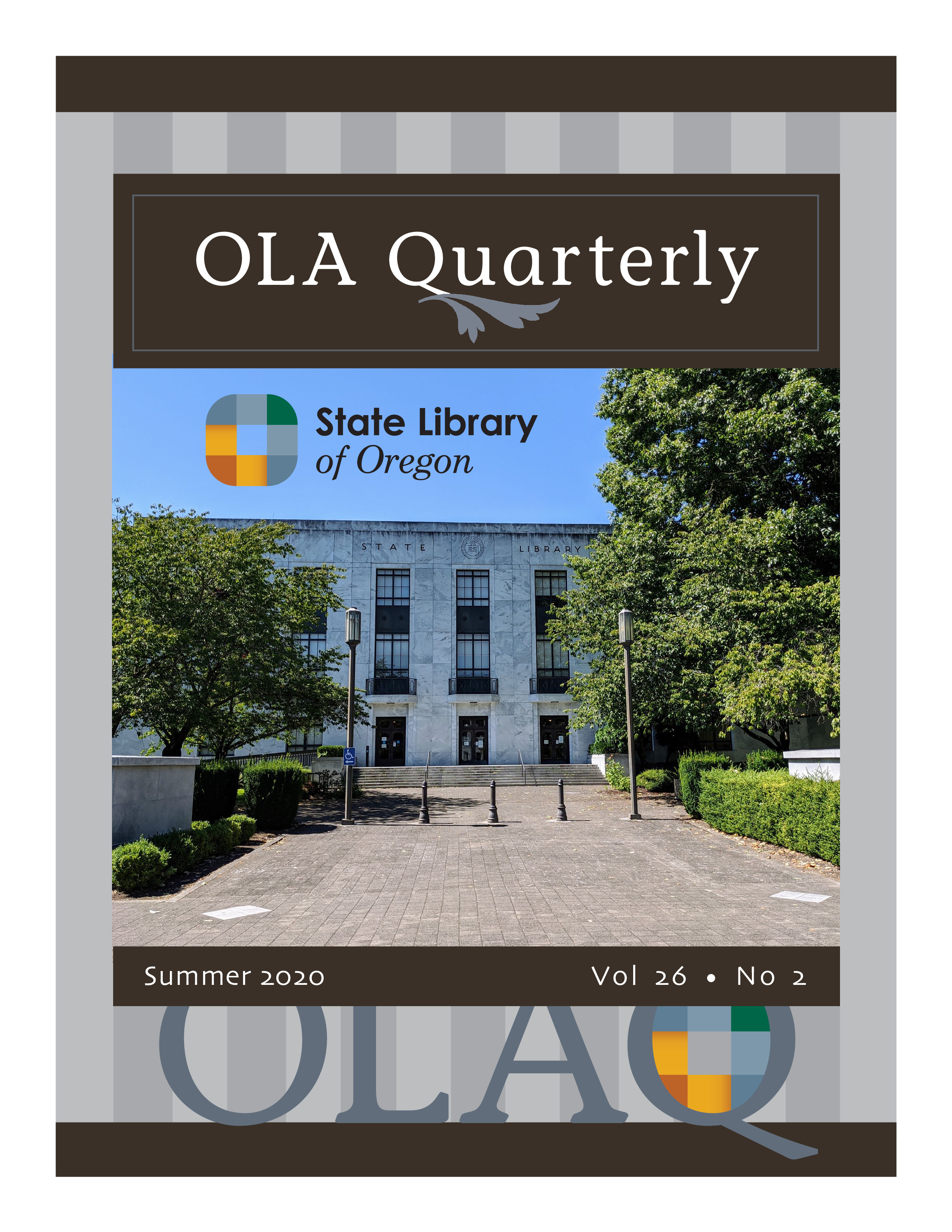A Matriarch With Many Sides: Contextualizing Oregon’s First State Librarian
DOI:
https://doi.org/10.5399/osu/1093-7374.26.02.03Keywords:
Oregon, library, association, Oregon libraries, academic library, libraries, librarians, northwest, information science, information literacy, social media, writing, library trends, books, donors, library funding, Oregon library association, quarterly, Oregon library association quarterly, American library association, ala, ola, reading, library success, success, evolving roles, OSU, Oregon state, University, web services, public, new discipline, changes in libraries, career, careers, library careers, library career, professional journal, scholarly, academic, circulation, Portland, innovative, inventive, solution, oregon librarians, librarian, civics, civic education, inspiring, engagement, role, participation, skills, create, creating, resources, develop, source, evaluate, evaluation, evaluating, collections, community, connecting, communities, history, Oregon State Library, State Library of Oregon, COVID-19, pandemic, Matriarch, Cornelia Marvin Pierce, eugenics, Oregon library commission, first, state librarian, Mary Frances Isom, Frances Galton, progressive era, Owens-Adair, sterilization, Walter Pierce, Klu Klux Klan, xenophobic, anti-semetic, talking book, braille, strategic plan, transparencyAbstract
Another pivotal point in societal consciousness is brewing. Statues, plaques, and other representations of the controversial values of times foregone have tumbled and awareness of the transgressions of historical figures is at an all-time high. Increased awareness has awakened a reexamination period, an acknowledgment of the necessity for a holistic narrative about the people and events we choose to honor. With this modern lens of cultural value being used to highlight the actions of past leaders, the State Library of Oregon has begun its own introspection on who we venerate and how.
Contextualizing Cornelia Marvin Pierce’s actions is the first step toward recognizing that the State Library has, through indirect association, contributed to the furthering of these movements against equity that occurred in the past, regardless of whether those attitudes reflect our values today. Our newest planning efforts include a vision to provide “equitable access to library and information services for all Oregonians” (State Library of Oregon Strategic Plan, 2020). A key step in realizing this vision is recognizing and addressing the inequities fostered by our past leaders as we commit to equity, diversity, inclusion, and anti-racist practices going forward.
Note: A new version of this article was posted on Nov. 6, 2020, to include the author's updated State Library of Oregon email address.






